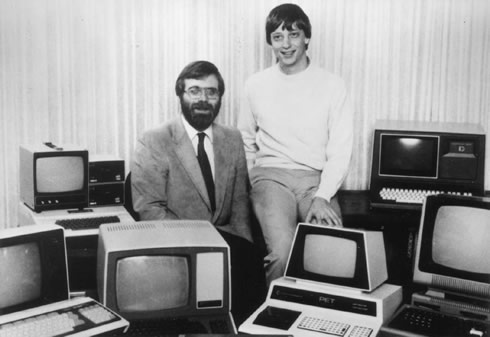This is part of my Series on Entrepreneurial Culture.
If you’re in the mood for a really enjoyable film I recommend you see Guy Ritchie'sSherlock Holmes. In it he uses the latest movie-making technologies to literally bring-to-life 19th century London in all its dark immensity and brooding menace- from the elegant halls of parliament to the ornate rooms of masonic temples to the labyrinthine sewers beneath the city. The sets and staging in and of themselves are a masterpiece and are simply breathtaking. I think the production designer should be nominated for yet another Academy Award.
For the Sherlock Holmes aficionados out there, I’ll also venture to say that Robert J. Downey, Jr. is terrific in this latest incarnation of the great sleuth. He brings an athleticism and playfulness to the role that is a fresh twist to any cinematic adaptation I have seen. I have an inkling that his performance would bring a smile to the face of the venerable Basil Rathbone and perhaps even to that of the great Holmesian master, Jeremy Brett himself, were they still living.
I too came to this film with a sensibility that I did not have when I first encountered Holmes as a young boy reading Conan Doyle. I was of course neither an entrepreneur or an early-stage investor back then. Not surprisingly, this time, soon after leaving the theater something I had never considered before really hit me. I was struck by the realization that Sherlock would have made an amazing venture capitalist! "What a perfectly silly notion my dear Watson!", he would no doubt have replied. But I would have to insist and say that VC's and Angel Investors young and old would do well to emulate some of Sherlock’s best qualities. Here they are as I see them:
1) Complete and Utter Attention to his Clients:
When he meets with someone, his total absorption in their presence is legendary. (He would, for example, never dare distractedly glance through his mail when receiving a guest- as many a VC are criticized for doing with their smart phones. He also is incredibly respectful and courteous to his clients, always responding to their telegrams promptly.
2) Immensely Perceptive and Observant:
LP’s looking for capital efficient managers take heed! Forget about your GP’s spending money to perform diligence on entrepreneurs. With Sherlock as the Managing Director, he can tell you a person’s entire story and background after the first meeting! He takes the meaning of due diligence to another level entirely.
3) He’s a World-Travelled, Experienced Entrepreneur Himself:
Worried (as Hoegaerden is) about “sub-prime VC’s”? Holmes is no newly-minted, blue-blazered-stiff-of-an-MBA just off the VC conveyor belt with no life-experience. He’s traveled the world, has enormous wisdom and runs the 19th century equivalent of a garage start-up consultancy with Dr. Watson.
4) Massive Intellectual Curiosity, Great Erudition:
Here’s a VC who doesn’t rest on his laurels and past accomplishments. He is constantly learning, reading, studying and staying abreast of new trends, the news, the latest technologies. He is the first Western martial artist, a naturalist, an amateur chemist par-excellence and an early adopter of the newest technologies and techniques available.
5) Loves the Big Idea, Huge Risk-Taker & Admires Disruption:
Here’s a true innovator not content with following the herd and investing in the latest incremental fad. He himself is disrupting the law enforcement industry with his own super-lean startup! The bungling bureaucracy of Scotland Yard and Inspector Lestrade are no match for Holmes’ home-grown operation with a staff of two, (three if you include his landlady, Mrs. Hudson).He’s confident and capable enough to trust his own vision and therefore is ready to tackle the biggest, toughest, most elusive problems in the marketplace!
6) Great Mentor, Coach and Board Member:
He leads by example, has intelligently advised innumerable clients and has helped Watson hone his now considerable skills as a crime-stopper. He anticipates events, predicts how people will react and has a keen sense of danger. Such a mentor could help any entrepreneur with the sales, marketing and hiring process, not to mention with the design of an effective strategic plan. He would make a great Board Member.
7) Great Ear for the Customer:
When it comes to understanding the views of the man on the street, no one is better than Holmes. He’s as comfortable in the elegant drawing rooms of 221B Baker Street as he is on the vilest lanes of London, has roughed it in disguise many a time and is known to have eyes and ears throughout the city. He has no allegiance to class, no patience for pomposity and judges a person on their individual merits.
8) Driven with Enormous Energy:
Here’s a guy who loves his job, pulls all-nighters regularly and will take almost any meeting. He’s relentless and ultra-determined when trying to solve a problem and this is infectious to the entrepreneurs he funds and advises.
9) High Standards & Innate Sense of What is Right:
Holmes is always very exacting of Watson and those around him, but never more than he is on himself. He takes on each engagement with an enormous sense of purpose and sense of what is inherently right. As many have said, he has his own sense of justice that is at times distinct from the rather blunt and un-nuanced version often displayed by his lemming-like colleagues at Scotland Yard. A loyal teammate with an unfailing moral compass, he is an enormous asset to the companies in which he invests.
10) Sense of Humor:
Lastly, as Robert Downey Jr. exemplifies so well in the film, Sherlock has a terrific sense of fun and playfulness and mischief- rarely taking himself too seriously. It is always disarming and endears him to Watson and many of his clients.He is respectful and yet irreverent all at once.













![Reblog this post [with Zemanta]](http://img.zemanta.com/reblog_e.png?x-id=39227201-051d-46aa-b614-b92cff685b5c)

![Reblog this post [with Zemanta]](http://img.zemanta.com/reblog_e.png?x-id=6c6beb76-b8ec-4e98-b4be-37534ab4585c)

![Reblog this post [with Zemanta]](http://img.zemanta.com/reblog_e.png?x-id=88dcb958-3446-44cc-8706-65f540dc5cdf)